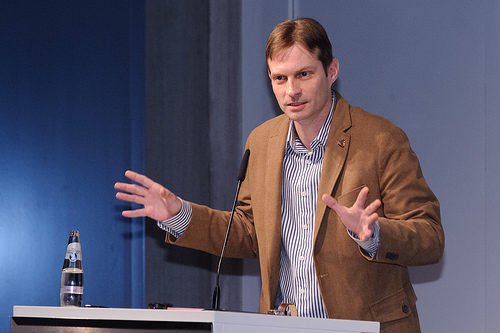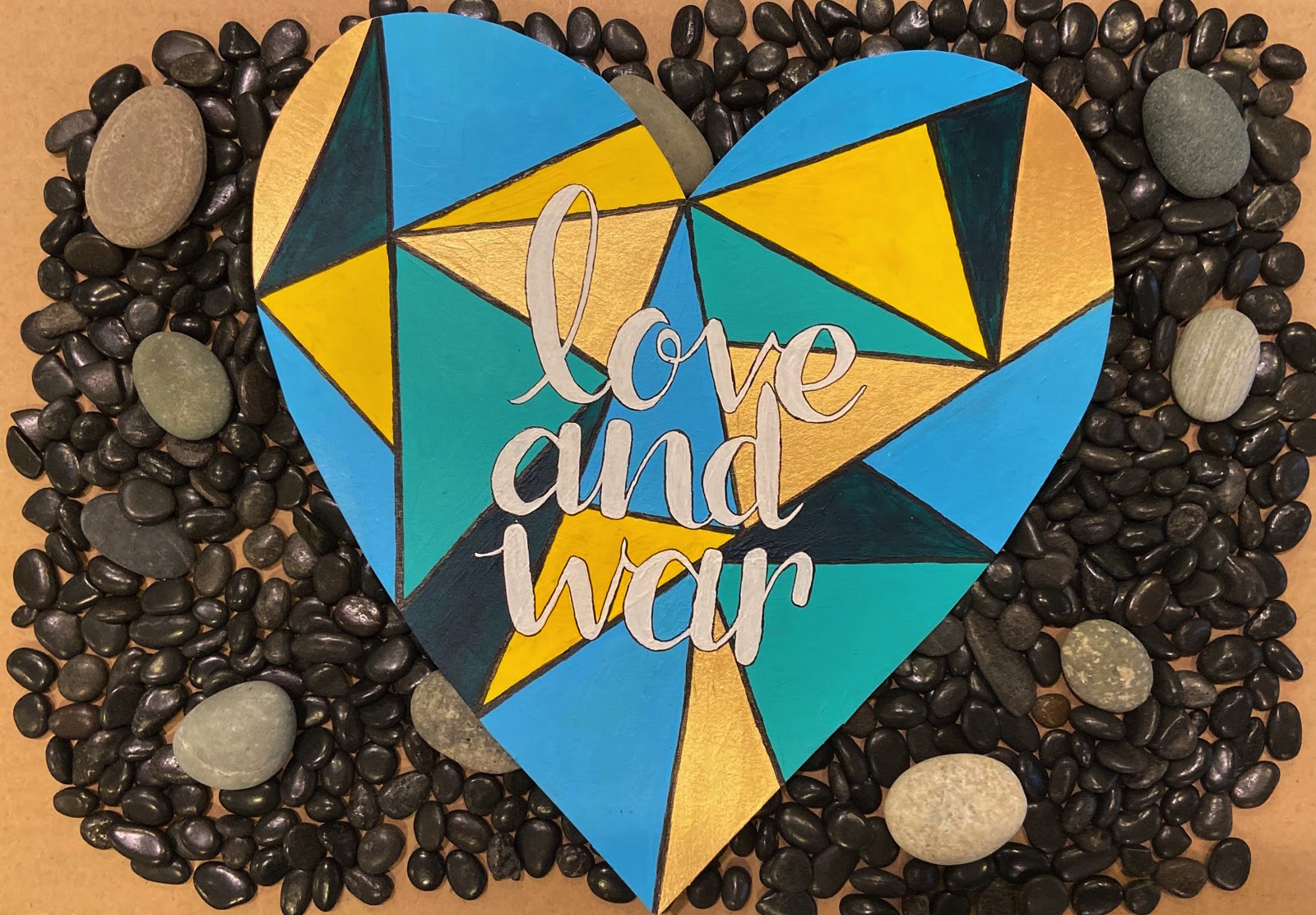
On Thursday, November 29th, Srdja Popovic visited Professor William Lovely’s Modern Political Thought class to lecture on the importance of non-violent activism.
Popovic has an extensive history in the realm of peaceful action. He and his colleagues have significantly impacted the direction of Serbian politics, and they continue to be a major influence in nonviolent resistance worldwide. In the late 1990s, Popovic and some of his fellow university students founded a group called OTPOR!, “resistance” in Serbian. They rallied citizens around the country against the tyrannical leadership of Slobodan Milosevic – what began as a small student group quickly spread to a national movement. Popovic was instrumental in the leadership of this movement, organizing clever protests and actions across the country that convinced populace that was initially hesitant to oppose Milosevic. After amassing more than 70,000 supporters around the country, the group was finally successful in leading the overthrow of Milosevic in 2000.
Though the Serbian government has progressed since the Milosevic days, Srdja continues to influence world politics through his leadership of the Centre for Applied Non Violent Action and Strategies (CANVAS). CANVAS works with nonviolent activists around the world to train them in successful strategies of nonviolent civil resistance. They collaborate with activists across the globe, from South America to Syria. They focus on effective public messaging and action, the importance of numbers, keeping nonviolent movements nonviolent, and the specific methods of overthrowing an oppressive regime. The CANVAS curriculum is taught by instructors from around the world. Also, training materials are available online in various languages for activists in countries that are largely closed off to outside conflict. By teaching this model, CANVAS is successful in promoting the principles of nonviolent action worldwide.
Popovic drew from this substantial experience for his lecture in our class. He started by saying that what matters in history, more than ethnicity or religion or nationality, are consequences. And when one looks to the consequences of violent conflict, one sees only more violent conflict. Popovic cited World War II stemming from the resolution of World War I. Yet, he noted that peaceful movements around the world – from India, to Poland, to South Africa, to America – have resulted in sustainable peace and stable institutions. He then quoted statistics in support of non-violent action: while 53% of non-violent protests are successful, only 26% of violent protests are successful; the probability of being a democracy 5 years after a violent overthrow is 4%, while this probability is 41% for non-violent revolutions.
Popovic stated that these overwhelmingly positive statistics result from the nature of non-violent activism. Non-violence encourages unity among citizens because when a movement progresses slowly, as many citizens as possible become involved. Popovic asserted, “When the people become the shareholders of the change, they have a stake in it.” Rather than forcing change upon the people with violence, this brand of activism brings the people together and changes the social fabric of the region. Thus, the institutions resulting from the overthrow are more legitimate to and accepted by the people. Popovic declared that this, more than anything, yields a stable country.
For more on Srdja Popovic and CANVAS, check out Srdja’s TED Talk and the resources available on the CANVAS website.
http://www.ted.com/talks/srdja_popovic_how_to_topple_a_dictator.html
http://www.canvasopedia.org


